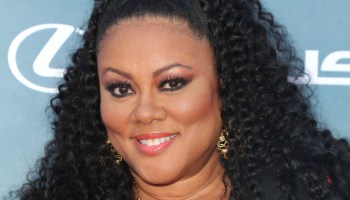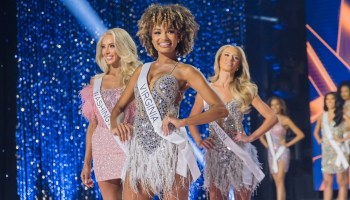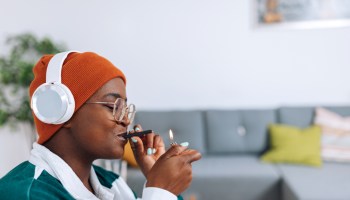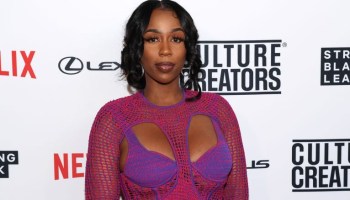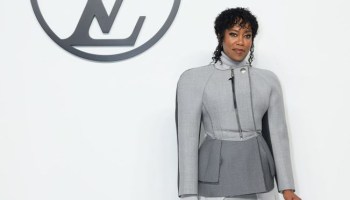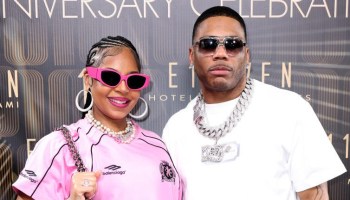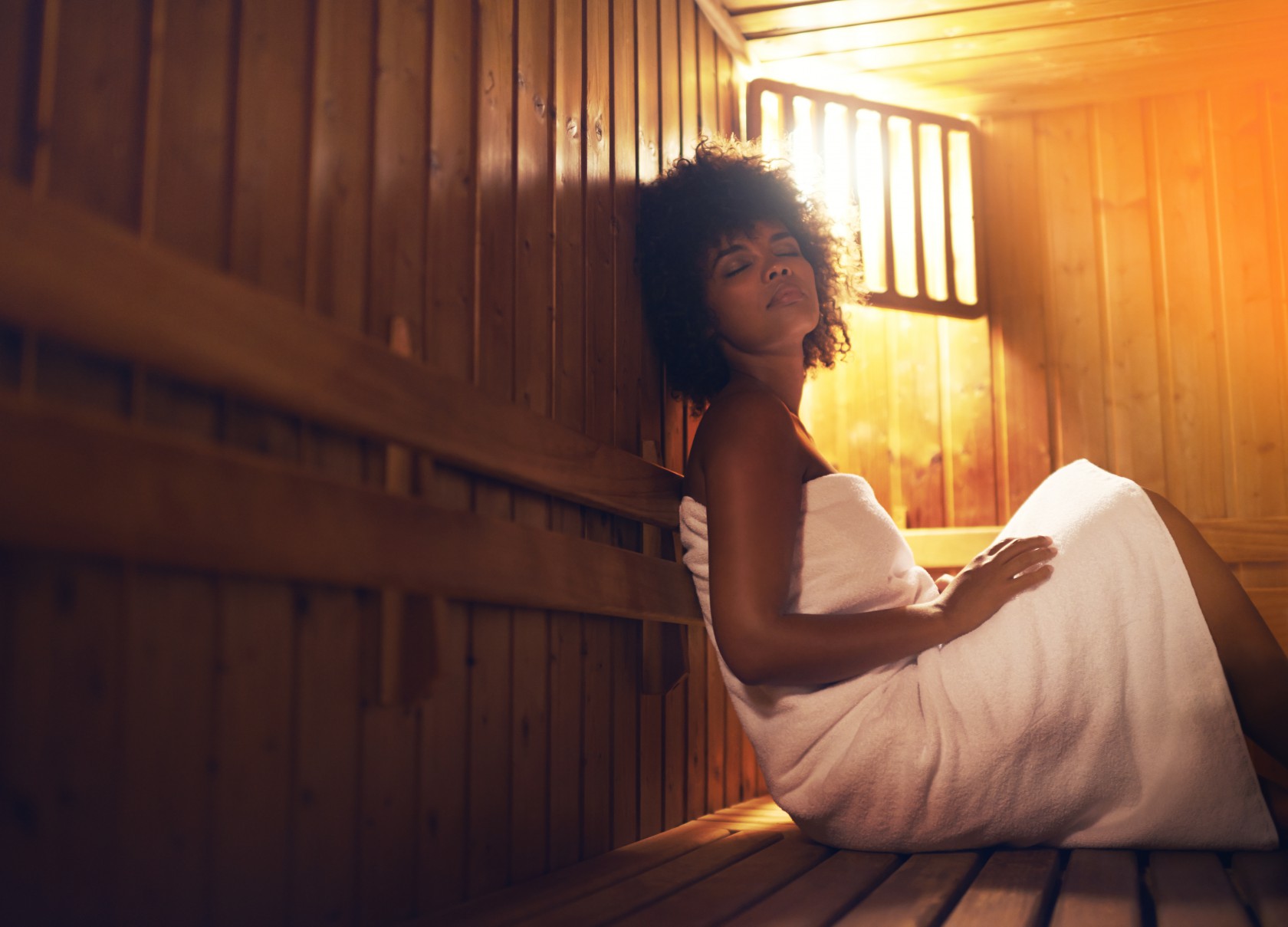
Source: Peopleimages / Getty
It’s funny how life works. Getting my ill na na waxed didn’t have to turn into such a revelatory experience, but in my experience as a Black woman in America, just existing can feel like a political act. But let me rewind:
I needed to find a new place to go for the Brazilian waxes that have become part of my personal routine. Having recently moved again, I didn’t have friends in the area with specific recommendations, so I hit up our good friend Google. As I scrolled results, two words jumped out at me from the little blurb about one of the locations: Fitzpatrick Scale. I clicked that link immediately.
For the uninitiated, the Fitzpatrick Scale is a standardized scale that is used in the medical and aesthetic fields to classify skin color. Developed by Harvard Medical School dermatologist Dr. Thomas Fitzpatrick in 1975, it is helpful in determining how one’s skin will respond to exposure to sun and UV light. A good skincare professional can look at most skin and make an assessment, but the more expansive version of the Fitzpatrick questionnaire takes into account one’s ethnic background and genetic nationality for as complete a picture of your potential for tanning, burning, and hyperpigmentation as possible.
I know this because of my many visits to many spas and medical aesthetic facilities on both coasts of our country where I was the only person there who had ever scored higher than a 3 on the ol’ Fitzpatrick quiz. (I’m a 5.) I’ve been warmly told that certain treatments were just not possible for me, such as laser hair removal, no matter how much money I tried to throw at them. Many laser devices intended for esthetic use are simply not indicated for use in darker skin tones.
These devices require testing and trials and the road to being FDA-cleared has historically not included trials on darker skin. The more we remain unevaluated, the longer it will take certain facets of the skincare industry to be able to provide us a fuller spectrum of services. And it’s not like I can cry “THIS IS RACIST!” because in many cases, it’s more practical than anything. Technically, these practitioners can do the laser hair removal or whatever it is that I was requesting on me, there’s just a high risk of burning and scarring because of the way the melanin in my skin could potentially respond to a laser, and there’s not enough widely available evidence and experience to the contrary. That’s not racism; that’s just science.
However.
Although not every procedure will work for every body, the final answer cannot just be a Kanye shrug and being shown the door; a world in which skin that looks like mine is permanently denied access to a whole range of treatments and services, which has largely been my experience. Enter Seven Brown and her Harlem Skin and Laser Clinic.
As I eagerly clicked link after link, I was blown away by images of the HSLC founder Seven Brown, who also appeared to hover around my end of the Fitzpatrick scale. Also, the website showed a multicultural staff and mentioned dedication to community building and humanitarian causes. I called and asked to be put in touch with Seven, because I just had to know more.
Seven has an incredibly impressive resume, not only as an esthetician, but as an educator, notably having risen in the ranks at New York’s Atelier Esthétique Institute of Esthetics, rapidly becoming the schoolʼs Lead Advanced Educator. There, she taught and managed all the post-graduate curriculums, including the first-ever comprehensive Paramedical Esthetics and International ITEC Certification. Seven has traveled extensively to educate, and she is a licensed esthetician in 38 different countries.
When I met Seven, she immediately exuded an aura of vibrant energy that miraculously sits just beneath her calm and serene demeanor. The woman just looks good. And she made me feel good, just being in her presence. Beauty is her business, but overall well-being is her calling, and that emphasis on doing good as well as looking it comes through in her personal comportment and her business philosophy.
What is now the Harlem Skin and Laser clinic began as an unnamed, shared room across the street from its present location, where Seven did treatments using a small space contained within a yoga studio. Through word of mouth about her excellence, her clientele grew and she expanded, finally opening the clinic as it stands now earlier this year.
As I sat in the waiting area, I was truly floored at the racial diversity of every person on the premises. The staff appeared multi-racial with a healthy emphasis on color, and the clientele that I watched enter and exit ran the gamut of age, race, and gender. It’s a bit sad that what ought to be a basic human experience of equality should stun me so, but in the context of an upscale esthetic facility, it did. Also, I’ve lived many places but I was born in Harlem and grew up in New York, and my heart stays heavy at the massive neighborhood changes that have pushed so many out.
I didn’t see that at HSLC. What I saw was a gorgeous, high-end facility with gorgeous people of all shades getting gorgeous-er. So I was already glowing without having had a facial when Seven and I sat down to chat.
Seven was born in New York and her family is Panamanian. When I inferred that she might identify as Afro-Latina, she confirmed that she does, and then said, chuckling, “I didn’t know that was a term until recently. Before that, I was just Black-Hispanic. Afro-Latina sounds way more sexy!”
The HSLC is the opposite of gentrification: a woman of color from the community has opened a business within the community that elevates it and welcomes all. When I brought up gentrification, Seven responded passionately, telling me that the word didn’t really affect her personally at first. Coming from a military family, her travels began very early, so she developed an ingrained sense of individual community later in life, telling me, “I grew up all over the place, and I was usually the only one, so I never really had that experience.”
That “only one” feeling that many of us have had in foreign or majority-white surroundings is a challenge unto itself, and Seven told me how settling in Harlem for an extended time and seeing the massive changes that have been happening there have really driven the ills of gentrification home for her.
She says, “What’s tough for me is watching people’s homes become a place that they can’t afford to live. That doesn’t seem fair; it just doesn’t seem right. I know it’s a dollars and cents thing, but I really think there are other ways to develop neighborhoods. I think that people of all shades and colors can all live together–as long as you’re not, like, murderers, I’m good with it. But to have what I experienced as Black culture, for the first time in my life in the last twenty-something years, it’s really hard to watch it slip away.
It’s really hard to watch people slip away. Businesses slip away. Businesses that were “mom and pops” that were around forever, to not be able to do business in their neighborhood. I have a [ubiquitous chain store that’s open all days and hours] coming to my block and I will not mince words: They’re not welcome. Because I know the families that run the corner stores, and that signals to me that they are in danger.”
Seven’s commitment to uplifting the neighborhood in community and respect can be seen right there on the website; not every beauty facility has a dedicated page for “community” and “causes” right alongside the facials and waxes. The clinic also has a large open loft area that Seven wants to make available to community organizers for meetings and events, as well as her own continuing educational seminars and panels.
And about those facials and waxes and other services; they’re truly stellar. There’s an emphasis on full wellness, and those ties to the yoga studio and concern about aftercare are strong. There are multi-service packages, like the “Breakover,” and memberships at reduced prices designed to give you great skin for life, not just an afternoon.
I’ve had many spa treatments in my life, and even documented some of the funkier ones, and the Brazilian wax I got there was easily a top experience. My phenomenal esthetician presented as white, and I’m noting that because in this context, race matters. When the Fitzpatrick scale is in play and we’re using hot wax and acids and lasers, melanin matters. When I told Seven that I had been turned away elsewhere for laser treatments, she laughed and said that was their error and lack of experience.
At HSLC, actual diversity is in effect, not “diversity” as a bullshit buzzword that allows too many institutions to feel comfortable doing the very least. True diversity is as simple (and as difficult for some) as understanding and asserting that white is not the default for human.
Seven’s pledge to water the roots of the neighborhood, instead of bulldozing them to build, is apparent when she speaks glowingly of her Harlem neighbors and their interpersonal connections. Speaking again of gentrification, she says, “The access to capital that is supposed to be here to empower the neighborhood does not. It empowers a new neighborhood. It doesn’t take people who are here and help them stabilize and be able to weather the economic change, and benefit from it, it just makes it a favorable condition for a takeover.”
She told me of a time when she had been living in the hood for years and would travel for extended periods to teach, like when she opened an Esthetic Institute in the Philippines, when her local corner store proprietors actually called her because she hadn’t been there in a while and they “just wanted to make sure [she] was alive.” She also told me how they had all the neighborhood kids’ school pictures up on the wall, including her daughter’s, who now has a child of her own. You most certainly won’t see [ubiquitous chain store that’s open all days and hours] displaying neighborhood kids’ pictures and calling frequent customers.
Seven’s commitment to exemplary esthetic practices and education is what will move the entire industry forward so that eventually no one will have to be turned away from spas as much as I have been. There will always be risks associated with certain procedures, but the lack of data is often more about lack of experience and education, and practitioners unwilling to do the work to include us. Harlem Skin and Laser Clinic is all about doing the work, and I couldn’t be more grateful.









